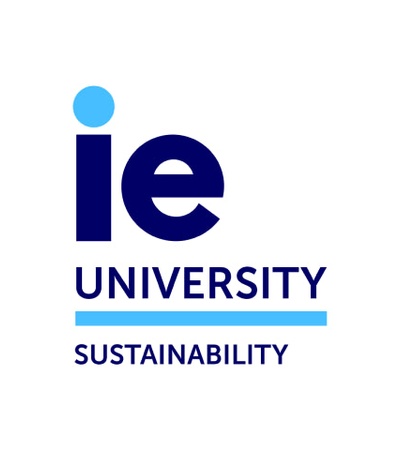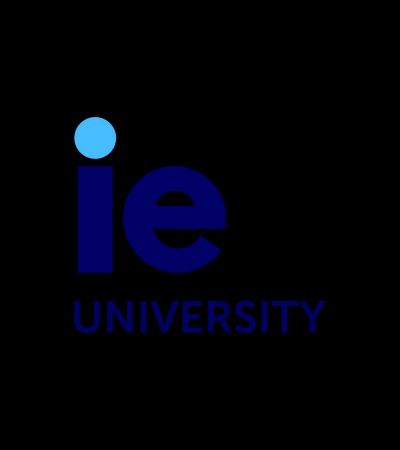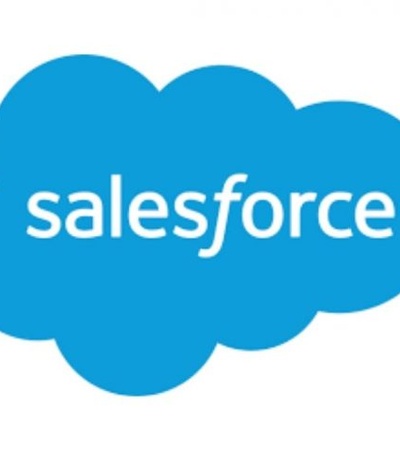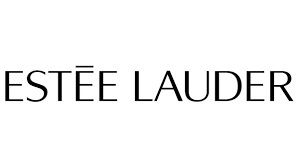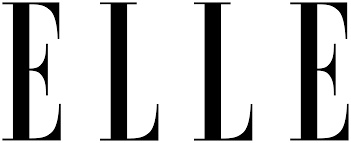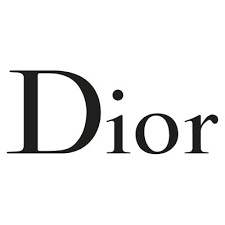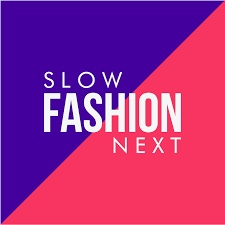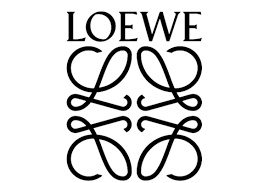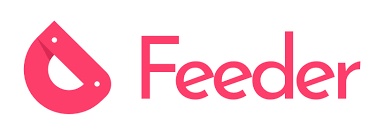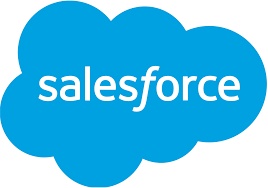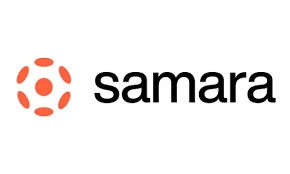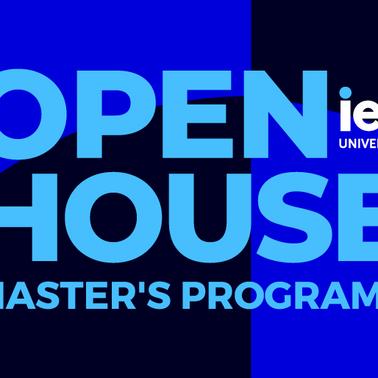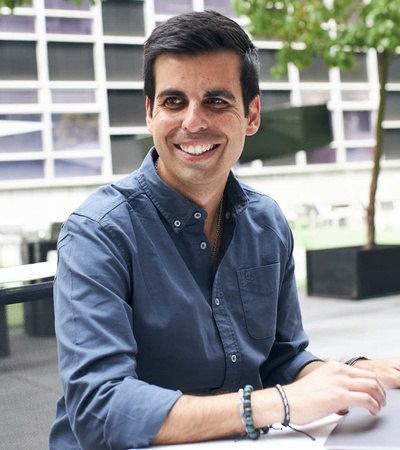
Master In Customer Experience & Innovation
- Home
- The Programs
- Masters
- Master In Customer Experience & Innovation
INNOVATIVE CUSTOMER EXPERIENCE FOR THE MODERN MARKETPLACE
The Master in Customer Experience & Innovation empowers you to create impactful, human-centered designs in the product, service and experience sectors. By rethinking and redesigning the customer journey, you’ll enhance consumer interactions and drive substantial value for businesses. Through an immersive exploration of business, technology and human-centered design, you’ll learn about project management, product and service design, user experience and more. You’ll learn to create seamless, synchronized experiences across all customer touchpoints and discover your unique path in the customer experience landscape.
The program is structured to transform you into a leader in innovation:
- Shift your mindset and create innovative solutions to gain professional opportunities such as: strategic design, innovation management, CX specialist and transversal roles that can impact any business department.
- After completing this foundational stage, where you will meet peers from different Master's programs, you will then tailor your learning journey to the Master in Customer Experience & Innovation.
- Choose from additional certifications to enhance your marketability, including those offered by digital giants like Google and Salesforce, or our own IE University Sustainability Certificate.
- Experience transformative growth with immersive experiences like Global Immersion Week or Social Impact Week. These programs offer firsthand insights through visits to key global hubs such as London, Amsterdam, Ghana and South Africa.
*The 2025-2026 intake starts on September 8th.

BOOK A CALL WITH ME
CHAT WITH ME
Master in Customer experience & Innovation overview
WHO IS THE THE MASTER IN CUSTOMER EXPERIENCE & INNOVATION FOR?
IT'S FOR INDIVIDUALS WHO...
wish to build innovative, human-centered solutions for the physical and digital worlds.
ARE LOOKING FOR...
a program that will allow them to engage with the ins and outs of service design, product design and experience design, while leveraging innovation to deliver value. They want to become the most in-demand designers, engineers and innovators for products and services around the world. After graduation, they might go on to work as a user experience designer, strategic designer, usability consultant, chief experience officer, innovation manager, product designer, business transformation manager or many other related roles.
KEY AREAS OF THE MASTER IN CUSTOMER EXPERIENCE & INNOVATION
COMMON CORE PERIOD
INNOVATION & TECHNOLOGY
DESIGN THINKING & HUMAN-CENTERED DESIGN
FROM THE ACADEMIC DIRECTOR
Andrew McCarthy, explains in-depth the Master in Customer Experience & Innovation.
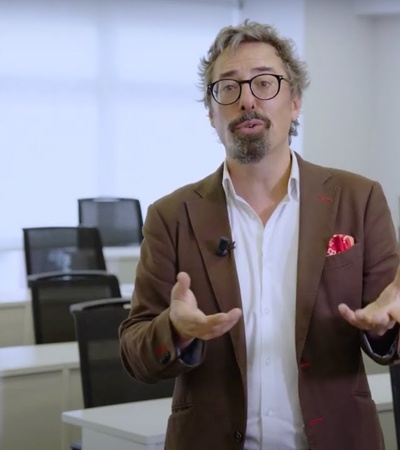
REASONS TO STUDY THE MASTER IN CUSTOMER EXPERIENCE & INNOVATION
IE Business School molds students into future-forward and well-rounded professionals, using methodologies that put innovation and employability at the forefront.
- 01.
EQUIP YOURSELF WITH IN-DEMAND CX & INNOVATION TOOLS
Learn everything you need to know about design thinking, innovation platforms and frameworks to successfully combine business, technology and human-centered design. Think strategically and work holistically in any type of organization, emerging as a next-generation CXI pro.
- 02.
LEARN FROM TOP CUSTOMER EXPERIENCE PROFESSIONALS
Our faculty is made up of a diverse group of academics and professionals who bring pedagogical rigor and real-world expertise into the classroom.
- 03.
DIVE INTO REAL-WORLD CX & INNOVATION PROJECTS
The program uses hands-on methodologies with transversal value for areas like product design, service design, experience design and more. Every term you will collaborte with different corporate clients and in the final stage of the program you will work on your own entrepreneurial project. In the past students have worked with companies such as: IKEA, Santander and IBM.
- 04.
CONNECT THE DOTS: COMBINE CREATIVITY AND EXPERIENCE DESIGN
Chief customer officers and chief experience officers are rapidly rising positions: in recent years, customer experience has quickly evolved into a highly-valued business discipline. The role of these professionals is to connect stakeholders, understand the consumer, and create solutions that deliver real value.
Student Profiles
- by Academic Background (%)BusinessEconomicsSocial SciencesEngineeringScienceHumanitiesOthers
- by Region (%)EuropeNorth AmericaAsia PacificSpainMiddle East & AfricaLatin America
- by Industry (%)Consumer Products & RetailBanking / Insurance / Financial ServicesConsulting & Real EstateHealthcare / Pharma / BiotechnologyMarketing /Design/ Fashion Design / TechnologyIndustrial Products & EducationChemical & Energy / LogisticOther
- 67%Female
- 95%International Students
- 24nationalities represented in class
PROGRAM STRUCTURE
PROGRAM STRUCTURE OF THE MASTER IN CUSTOMER EXPERIENCE & INNOVATION
- Description
- PREPROGRAM
- COMMON CORE PERIODseptember-october
- Terms
- Final Project
- BEYOND THE PROGRAM
- core subjects
- First termNOVEMBER-DECEMBER
- Second termJANUARY-MARCH
- Third termAPRIL-JULY
- Academic Essentials
- program extras
- Career Sector Tracks
The Master in Customer Experience & Innovation will kick off with a Core Period that is common across all of our Marketing, Communications and Sales programs. You will study alongside students with similar personal and professional goals, offering the opportunity to network, as well as find certainty in your career path. This also gives you the option to potentially change programs if you see fit. The program is spread across three terms and will cover four pillars: Business, Technology, Human-Centered Design and Innolabs.
EXCEL TOOLS FOR MARCOM
This two-session pre-program course builds the foundations of working with data on Excel. Once you've completed this pre-program, you will be able to confidently use your new data-driven problem-solving skills and navigate the technical world of Excel.
The Master in Customer Experience & Innovation final project consists of hands-on Innovation Labs that constitute transversal skill building, allowing you to work in areas like the creative process, adaptive leadership, prototyping, design thinking and insights.
CORPORATE CLIENT PROJECT
Throughout the first term, you will have the Corporate Client Project, where you will learn how to:
- Develop and exercise innovation skills and a CX perspective.
- Hone skills in project management, planning, evaluation, client-oriented consulting, teamwork and decision-making.
- Apply the key concepts, models, skills and theoretical frameworks learned throughout the first term of the program.
- Learn how to plan, organize, motivate others and control resources to achieve specific goals while improving technical skills, clarity and persuasion of presentation in human-centered innovation.
Social Impact Project
In the second term, you will have the Social Impact Project where you will address a real-world opportunity to create sustainable impact for a real group of people. You will work by defining the problem, gathering and analyzing data, designing and evaluating an ethical strategy, and finally, its implementation.
SOCIAL ENTREPRENEURSHIP PROJECT
During the Sustainable Entrepreneurship Project in the third term, you will conceive a human-centered innovation project that has the potential to become a commercial or sustainable entrepreneurship venture. You will develop both your creative and business mindsets through this in-depth, practical project.
CAREER DISCOVERY ACCELERATOR
To help you progress with your individual career goals, IE Talent & Careers offer students exclusive tools and resources throughout the duration of your program. The IE Talent & Careers Center also lead a series of classes to prepare you for today’s competitive job market.
IMPACT SKILLS ACCELERATOR
Throughout the duration of the program, a series of key skills workshops led by experienced professors will enhance your workplace skills. These workshops provide practical resources, techniques, and insights to help you overcome obstacles and make informed decisions, supporting you in gaining an edge in the competitive employment landscape.
The Impact Skills Accelerator ensures students develop and master essential competences and skills critical for success and specifically demanded in today's dynamic job market. We refer to these as impact skills, which are those that enable students to really make an difference at work and in their personal lives and that they take with them throughout their careers, undeterred by any social, digital, or economic shifts.
- AI for Productivity
- Critical Thinking
- Self-Transformation
- Storytelling and Public Speaking
- High-Performance Teambuilding I
- High-Performance Teambuilding II
- Problem Solving
- Project Management
- Power and Influence
This course delves into the realm of visual communication, emphasizing the importance of constructing compelling visual compositions and presentations. Students will explore how elements such as type, image, color, and space combine to create effective visual systems. Learning objectives include presenting information effectively, conveying emotion to target audiences through visual elements, selecting visual assets aligned with creative briefs, and constructing adaptable visual systems for various communication channels.
This course blends lectures and practical exercises to deepen understanding of Strategic Marketing and Branding. Lectures introduce key concepts with real-world examples, while exercises offer hands-on application. Students learn to develop effective strategies by leveraging analytical skills and market insights, covering brand definition, management, models, dilemmas, and the branding process. Emphasizing integration with business strategy, the course addresses the 5 C's, STP process, and 4 P's of marketing.
This workshop introduces the concept of well-being and its significance in thriving personally and contributing positively to communities. Students will develop skills for a better life and invest in becoming their best selves, focusing on presence, curiosity, and reflection to align with core values. Emphasis is placed on fostering a safe environment for open dialogue and exploration of well-being practices. Key objectives include introducing core values of well-being, increasing awareness of the mind-body-soul connection, fostering a healthy self-perception, motivating personalized action plans, and cultivating an authentic culture of well-being.
This course equips graduate students with advanced communication skills for professional and personal success. Covering persuasive storytelling, participants learn to effectively convey ideas, engage stakeholders, and inspire action through public speaking. Key objectives include clear communication, storytelling mastery, non-verbal enhancement, audience tailoring, active listening, stakeholder confidence, and personal growth reflection.
The internet landscape is evolving rapidly with various social media platforms, reshaping brand-consumer interactions. This course explores the dynamic social media ecosystem, stressing the importance of grasping social dynamics and technology. Through case studies and practical experience, students learn social business strategies, tools, and key performance indicators driving web 2.0 evolution. The goal is to equip students to create and execute comprehensive social media strategies, emphasizing understanding social consumer principles and best practices. By the course's end, students comprehend the business impact of social media, develop strategic plans, and define realistic objectives and indicators for their strategies.
Project management is essential in modern organizations, covering various activities like product development, technology implementation, marketing, and mergers. Two main methodologies, classic and agile, offer distinct approaches, each with strengths and limitations. This workshop offers hands-on experience in project planning and control, stressing the importance of adapting managerial approaches to the project type. Participants will learn agile Scrum methodology and classic techniques including work breakdown structures, Gantt charts, resource management, budgeting, and progress monitoring. By understanding the pros and cons of both methodologies, managers can effectively select the most suitable practices for different project scenarios.
This course focuses on customer experience within human-centered design and design thinking frameworks, prioritizing empathy and positive interactions. Participants learn to understand customer needs, create journey maps, gather feedback, and design initiatives from the customer's perspective. Key topics include emotional connection, customer-centric culture, and measuring experience metrics.
Marketing and Communication Managers play a critical role within companies' Leadership Teams, particularly in today's rapidly evolving business landscape. They are integral to financial viability plans, as their departments shape the marketing mix to enhance customer loyalty, drive sales, and optimize costs. Moreover, they assist in minimizing risks and informing strategic decisions. To effectively contribute, Marketing and Communication Managers must grasp key financial concepts and develop financial acumen. This understanding enables them to generate value in their recommendations, aligning consumer perspectives with company objectives and operations.
This course explores identity, exclusion, and inclusion in everyday society, emphasizing their importance in business for employee recruitment, engagement, and retention, as well as for overall profitability. While diversity and inclusion are often used interchangeably, the workshop highlights their distinctions and impact on individuals and organizations. Participants will learn practical strategies and skills to implement diversity and inclusion initiatives effectively. By the course's end, students should grasp the differences between diversity, equity, and inclusion, understand their significance in personal and professional spheres, and be able to apply authentic diversity and inclusion strategies.
This highly interactive workshop emphasizes problem-driven thinking as essential for success across various ventures, including startups, corporations, and social enterprises. Participants engage in action-oriented, hands-on activities, fostering idea exchange, reflection, and experiential learning. By the workshop's end, attendees will recognize the entrepreneurial mindset, understand the role of value and creativity in opportunity identification, and leverage entrepreneurship to create sustainable and social impact.
This class covers market research fundamentals and consumer behavior concepts essential for insight practitioners. It explores qualitative, quantitative, and neuromarketing methods, alongside insights into decision-making processes and behavioral economics. Emphasizing data-driven insights, students learn to identify market information, understand key consumer demographics, and develop strategies for business growth.
Negotiations are akin to theater productions, where understanding the characters, scripts, and behind-the-scenes dynamics is crucial for success. Transactional Emotional Intelligence (TEI) sessions aim to equip participants with the interpersonal skills needed to navigate negotiations effectively, fostering positive outcomes and satisfaction for all parties involved. The course covers various negotiation concepts, including collaborative and competitive approaches, empowering students to confidently tackle complex negotiations using the tools learned throughout the sessions.
This workshop addresses the shift towards more horizontal and team-centric organizational structures, emphasizing the importance of high-performance teams in today's workplace. Participants will gain awareness of their own preferences and practice strategies for building and sustaining successful teams. The focus is on cultivating a collective mindset and implementing self-healing strategies to address common dysfunctions. Key objectives include understanding the benefits of teamwork for decision-making and problem-solving, learning principles of group dynamics and management techniques, and developing people skills to navigate challenges within work teams.
This course explores the complexities of cross-cultural communication in today's interconnected world. While physical travel has become routine, effective communication across borders remains challenging. Using real-life examples from global business hubs like Mumbai, Tokyo, and New York, the course unpacks the diverse elements of culture. Participants will learn theoretical concepts and engage in hands-on exercises to develop intercultural competence. Key objectives include identifying implicit communication norms, understanding cultural specificity, decoding different cultural contexts, and fostering empathy to bridge communication gaps.
This course equips students with essential theoretical and practical skills for Business Development & Sales in Marketing and Communication. It enhances strategic thinking and business acumen, preparing students for post-master's success. Students gain skills for global business development, explore decision-making psychology, and learn effective relationship-building strategies. Additionally, the course covers sales methodologies, customer journey impact, sales technology, and key analytics.
Embark on a discovery journey to learn new frameworks and tools, apply new skills to a project, practice communication and teamwork capabilities, and reflect on your leadership style. Understand the importance of team-building, collaborating, celebrating wins, delivering feedback, and understanding how to adapt.
Strategic, holistic business understanding in the context of design and human-centered innovation for the business-literate and non-literate alike. Learn how to weigh business requirements from the organizational context, as well as how to establish and implement processes that can be evaluated by measurable indicators. This course also includes Finance and Organization.
The creative process is the act of making new connections between old ideas, thereby recognizing relationships between concepts. In this course, we investigate models of creativity, theoretical frameworks, and personal styles and preferences. We also explore the process of creativity and the necessity to develop that process, as well as ensure that students’ creative muscle gets stronger.
This course provides a solid foundation and context for a program on human-centered innovation and business, including signposting the program ahead and reframing questions and terms such as ‘value', 'co-creation' and ‘customer’ in order to guide our investigations throughout the program. We'll focus on ethics as it specifically relates to human-centered innovation and business; how to navigate the ethical and moral minefield of qualitative & quantitative research; communications; inspiration; creativity and its sources; and business and operations responsibility. Learn how to use the insights garnered into people’s lives and experiences without exploitation, objectification or intentionally addressing needs in ways that are knowingly harmful to them or their environment.
Dive into ethnography and anthropological techniques and tools. Explore the “how and why” in the context of a small sample size. Work with generative, heuristic, and examination research and learn about jobs to be done (JBTD), usability and framing.
Work with large, nomothetic data sets identifying the “who, what, when, and where” in order to uncover variables and systematic relationships.
This practical course comprises a corporate client project in the first term, a social impact project in the second term and an entrepreneurial project in the third term. It is the integrative core of the program experience, combining all its creative, practical and strategic aspects. During the second term, students will work with a social organization to define and develop a social impact project that will address a real-world challenge to create sustainable impact for a community or group. Students will work through the process of defining the problem, gathering and analyzing data, designing an appropriate and ethical strategy, formulating and evaluating options, making recommendations to address the problem, implementing solutions, building the business case and delivering the roadmap for implementation.
This course aims to help students develop their own presentation style in a safe space, incorporating vocal and physical techniques which will help them to confidently communicate their work to others. Self-awareness is an important element of the course, and students will practice guided self-reflection in between each session. Using methodologies and tools from professional theater, participants will enhance their improvisation skills, adapt best practices to a remote/hybrid context, and take part in performances and role-play scenarios which will prepare them for the demands of future workplaces.
A comprehensive learning experience that combines the practical use of software applications like Adobe Illustrator with an understanding of essential graphic design principles and critical thinking skills. Students will learn about different softwares, their key features, and create and edit visual assets. They will also develop a strategic mindset by analyzing design problems, considering target audiences, and making informed design decisions. Through hands-on projects, students apply their knowledge and receive feedback to enhance their skills.
Embark on a discovery journey to learn new frameworks and tools, apply new skills to a project, practice communication and teamwork capabilities, and reflect on your leadership style. Understand the importance of team-building, collaborating, celebrating wins, delivering feedback, and understanding how to adapt.
Learn how to build “super brands” and implement growth strategies to accelerate their impact. Develop the tools to bring a relevant value proposition to the market and potentially generate exponential growth. Learn the key foundations of a brand, as well as how to combine insights, strategy and creativity to come up with a world-class positioning and purpose that is at the core of any successful company. Understand the new rules of marketing and, most importantly, understand where we’re coming from and what’s new, to get ready for what’s next.
Understand how to foster, support, and/or lead systemic evolutionary change in organizations to shift them towards customer centricity, qualitative research-based insights, iterative experimentation and lean problem-solving from a holistic organizational perspective. Drive change from any position within a simple or complex organizational structure.
The creative process is the act of making new connections between old ideas, therefore recognizing relationships between concepts. In this course, we investigate models of creativity, theoretical frameworks, and personal styles and preferences. We also explore the process of creativity and the necessity to develop that process, as well as ensure that students’ creative muscle gets stronger.
In order for customer experience and innovation initiatives to be successful, professionals must work in a transversal manner across their organization. This course will provide students with an understanding of how CX activities integrate, complement and sometimes conflict with a company’s other business processes, activities and jargon. CX and innovation practitioners, whether in startups or large enterprises or acting as outside consultants, can only succeed when they can convince different departments to align their incentives and priorities. Explore the diversity of organizational roles that impact CX, as well as tactics for building bridges with other departments and teams.
This course asks the question: What consistent underlying processes can we use to frame our investigations and make sense of insights and testing from an understanding of the way individuals operate, both solely and in groups?
Creative solutions for the future begin with thoughtful insights into the present.” In order to identify fuzzy targets for fuzzy challenges, practitioners must engage in immersive research to develop empathy with stakeholders. After analysis, synthesis is required to propose meaningful hypotheses based on evidence and perceptions into the researched people’s needs, wants and goals. With that, solutions can be prototyped and tested in an iterative process so that desirable, viable and feasible offerings can be uncovered. In this course, students explore the various methodologies employed in the human-centered design approach.
This course is a survey of all the relevant prototyping methods, techniques, and formats, as well as the spaces in which the kind of radical collaboration vital to human-centered business and innovation happens. On the one hand, we evaluate spaces for innovation from the team side; on the other hand, we look at it from the user side.
Behavioral design has quickly become a trendy concept for all sorts of organizations, from corporations and startups to NGOs and governments. Now that you have an understanding of the theoretical side of human behavior and topics like decision-making, heuristics and biases, we will go one step further by applying these principles to different innovation cases. In these first kick-off sessions, we will discuss the purpose of behavioral design and understand its true worth.
This practical course comprises a corporate client project in the first term, a social impact project in the second term and an entrepreneurial project in the third term. It is the integrative core of the program experience, combining all its creative, practical and strategic aspects. During the first term, students will practice executing each stage of the development of a real-world corporate client project, from investigation to ideation to implementation.
This course aims to help students develop their own presentation style in a safe space, incorporating vocal and physical techniques which will help them to confidently communicate their work to others. Self-awareness is an important element of the course, and students will practice guided self-reflection in between each session. Using methodologies and tools from professional theater, participants will enhance their improvisation skills, adapt best practices to a remote/hybrid context, and take part in performances and role-play scenarios which will prepare them for the demands of future workplaces.
These sessions will provide students with the fundamentals and support for their final projects (social impact), with special emphasis placed on UX, UI, usability and digital interaction.
Technology is changing the way customers and companies interact every day. In this fast-paced environment, early adoption of technology when tailoring or adding value to customers often draws the line between failure and success. Competitive advantage no longer comes through the whimsical use of technology but through how technology solves the main challenges that customers/individuals face providing a response to human behavior, motivations, and situations.
Embark on a discovery journey to learn new frameworks and tools, apply new skills to a project, practice communication and teamwork capabilities, and reflect on your leadership style. Understand the importance of team-building, collaborating, celebrating wins, delivering feedback, and understanding how to adapt.
Students will learn about—and practice—the fundamental elements of behavioral design. The course will begin with a focus on group discussion, debate and idea-sharing about some of the macro elements involved in behavioral design, such as its increase in popularity, ethical implications and sustainability considerations.
The creative process is the act of making new connections between old ideas, thereby recognizing relationships between concepts. In this course, we investigate various models of creativity, theoretical frameworks and personal styles and preferences. We also explore the process of creativity and the necessity of developing this process, as well as how to strengthen your "creative muscle".
Students will also engage in practical hands-on activities so that they become familiar with applying a behavioural lens to experience design, specifically to UX and UI. There will be group activities that put into practice the learnings of the course.
This course will enable you to facilitate workshops that engage different teams, such as business, product, tech and legal, to drive decision-making processes in business contexts.
Gamification can be defined as the use of game design, game elements and play for objectives beyond entertainment. In this course, students gain an understanding of how this can be applied to settings like business and social challenges in order to understand human behavior and motivation. By the end of the course, you’ll be able to:
- Analyze and propose improvements to an existing solution through the lens of gamification.
- Clearly define the objectives and behaviors to be achieved. • Apply a framework to better understand your players.
- Design a solution using gamification to engage and motivate the “players.”
- Prototype and play-test a solution using gamification.
Reflect on the basic principles of persuasive communication and how critical thinking can make us better communicators—as well as consumers of communication. Provide an overview and analysis of how values, identity, empathy and attitudes are deliberately influenced through communication, relying on both scientific and rhetorical perspectives to explore what persuasion is, how it works, and what role it can play in constructing and deciphering persuasive messages.
Design can guide businesses both transversally and vertically. In this course, you will focus on learning how to align human-centered investigation and solution proposals with business requirements through strategic design. You will also have the opportunity to learn to:
- Use this kind of research to question design strategies for specific organizations.
- Synthesize design across projects, regions, departments and stakeholders.
- Align insights, solutions and prototyping with various institutional stakeholders and local partners.
- Deliver value to customers in existing or proposed industries and work with different partners.
This practical course comprises a corporate client project in the first term, a social impact project in the second term and an entrepreneurial project in the third term. This is the integrative core of the program experience, combining all its creative, practical and strategic aspects. Over the third term, students will develop a comprehensive, human-centered innovation entrepreneurial project with the potential to become a commercial or social entrepreneurial offering. The creative and business sides of the project will be developed. This will be an in-depth, practical project, encompassing discovery, definition, development and delivery.
This course aims to help students develop their own presentation style in a safe space, incorporating vocal and physical techniques which will help them to confidently communicate their work to others. Self-awareness is an important element of the course, and students will practice guided self-reflection in between each session. Using methodologies and tools from professional theater, participants will enhance their improvisation skills, adapt best practices to a remote/hybrid context, and take part in performances and role-play scenarios which will prepare them for the demands of future workplaces.
This course brings together many other concepts from this master's program into one: quantiative analysis, qualitative analysis, design thinking, and data visualization to bring a product, or feature of a product, into the world. Since our much of world is driven by code, this course will involve a small amount of Python coding by all students (don't worry, you'll learn it!). Writing code will help you understand what it takes for technological innovation to happen.
Customer Experience (CX) is a business strategy focused on creating emotional engagement with customers and generating economic value for the company. As customer expectations for personalized experiences evolve, organizations invest heavily in enhancing CX to differentiate their brands, with those balancing customer expectations and financial targets achieving sustained growth..
This course will align business and customer strategies to balance value for both. It covers the relationship between financial statements and CX, CX metrics, and introduces CX Economics and ROI. Real-world cases will illustrate these concepts, including impacts on ROI for Employee Experience (EX) and Digital Experience (DX). Mastering these areas will help CX professionals optimize spending, investment, and income while delivering exceptional customer experiences.
Welcome to “Product Management & Ownership”, a comprehensive module designed to equip aspiring product managers and business professionals with the essential skills and knowledge required to excel in the dynamic field of product development and management. This module is meticulously crafted to provide a holistic understanding of the product lifecycle, from ideation to market launch, and beyond. This module is ideal for aspiring product managers, business analysts, entrepreneurs, and professionals looking to deepen their knowledge in product management and ownership. Join us to transform your understanding, enhance your skills, and become a leader in the field of product management.
The Mentor Program is a year-long program in which IE University program alumni offer support to current students through regular mentorship. Mentors take a human-centered approach in the design of their sessions, further enhancing the student experience at IE University.
As a student or alumni you can be part of IE's Venture Lab. Here, you will be trained as an aspiring entrepreneurs to validate, design and prepare their startup projects for launch. Here you will have a full incubation program that takes you from the idea stage to your MVP.
Broaden your perspective on international business markets and Marketing, Communication & Sales career trends as part of optional international experiences: Global Immersion Week or Social Impact Week.
Global Immersion Week
The Global Immersion Week allows students to network with companies, explore new cultures and gain new career insights.
Social Impact Week
During the Social Impact Week, students are able to visit local companies and develop a project focused on Social Impact, Entrepreneurship and MARCOM.
Once a month, students will have the chance to hear from top speakers from different companies in the Marketing, Communication & Sales (MARCOM) industry. In the past speakers have represented companies as Kantar, McKinsey, Interbrand, Fjord to name a few.
This program will further boost your career by offering certifications from Salesforce, Google, and IE University’s proprietary Sustainability Certificate. These options are all available and designed to help you progress in your chosen career path.
After completing your program, you’ll be able to join an additional optional term to specialize in two of the most relevant industries for the Marketing, Communication & Sales pathway. During the Career Sector Track period from September to December, you will enjoy a career-driven curriculum with several practical consulting projects, in-company visits, project-based learning and additional networking opportunities for your job recruitment process. The Career Sector Track will have an additional cost. You can either enroll before joining IE University or while you are doing your master’s degree, up to the deadline that will be communicated by the academic team. We will have limited slots assigned for these two tracks, so the sooner you apply, the better.
MARCOM FOR CONSUMER GOODS, LUXURY AND FASHION
Unlock the knowledge to increase sales and engage with customers worldwide by learning from top executives at today’s most relevant brands. Discover industry secrets behind the main e-commerce and experiential marketing strategies and learn how these brands are staying competitive, relevant and sustainable over time with the latest digital marketing tools.
MARCOM FOR TECH COMPANIES
Discover how the main tech brands have achieved success and growth over the past ten years and learn their best practices in branding, marketing and sales. Uncover the latest Customer Experience trends in the tech world and become a top Marketing, Communication & Sales global player.
BUSINESS STRATEGY BY REGIONS FOR LUXURY, FASHION, AND FMCGs BRANDS
This course provides an in-depth analysis of how luxury, fashion, and FMCG brands develop strategic approaches to succeed in diverse global markets. By examining regional economic trends, cultural influences, and political landscapes, students will gain a thorough understanding of how these factors shape consumer decision-making. Key topics include product adaptation for different regions, market-specific branding techniques, and supply chain management adjustments that reflect cultural considerations. Additionally, the course highlights innovation and sustainability practices tailored to address regional complexities, with case studies showcasing both effective and ineffective strategies. Targeted at marketing experts, business strategists, and entrepreneurs, the course culminates in a practical project where participants will design or refine a regional business strategy, applying key learnings through interactive discussions and workshops.
COMPLIANCE & RISK MANAGEMENT IN THE LUXURY, FASHION AND FMCGs INDUSTRY
This course offers an in-depth exploration of the legal and ethical challenges faced by luxury, fashion, and FMCG brands, equipping students with the tools to develop strong compliance and risk management strategies. Participants will examine the regulatory frameworks that govern these industries, including laws on intellectual property, labor rights, environmental sustainability, and consumer protection. The program also covers risk assessment techniques, crisis response planning, and corporate responsibility initiatives to ensure brand longevity. Additionally, students will analyze the impact of technological advancements on regulatory policies and data protection measures. By studying real-world examples of successful and failed compliance strategies, participants will gain the critical thinking skills needed to navigate industry regulations while maintaining ethical and sustainable business practices.
BUSINESS DEVELOPMENT AND GROWTH IN LUXURY, FASHION AND FMCGs (B2C)
This course provides a deep dive into the key business development strategies essential for success in the luxury, fashion, and FMCG industries. With an emphasis on market expansion and brand positioning, students will explore how to penetrate new regions, optimize sales channels, and strengthen consumer connections. Topics include customer relationship management, competitive market analysis, and high-impact sales techniques tailored to global markets. Through hands-on case studies, participants will gain the skills needed to implement sustainable growth strategies and navigate the complexities of international business landscapes.
BUILDING PARTNERSHIPS IN LUXURY, FASHION AND FMCGs (B2B)
This course offers an in-depth look at the role of partnerships in the luxury, fashion, and FMCG industries, focusing on effective B2B collaboration strategies. Students will learn how to assess potential business partners, negotiate contracts, and manage joint ventures for long-term success. Topics include innovative partnership models, alliance-building techniques, and the impact of digital transformation on B2B interactions. Through case studies, participants will analyze how industry leaders develop strong partnerships that enhance brand reach, operational efficiency, and market competitiveness.
BRANDING BEST PRACTICES FOR LUXURY, FASHION AND FMCGs (B2B)
This course provides a detailed analysis of branding best practices in the luxury, fashion, and FMCG industries, emphasizing the importance of differentiation, heritage, and storytelling. Students will explore key branding strategies, including positioning high-end and fast-moving consumer products, crafting unique brand identities, and utilizing digital channels for audience engagement. The curriculum also examines social media branding, influencer partnerships, and the evolving role of digital marketing in consumer perception. By integrating theoretical frameworks with hands-on exercises, participants will gain the tools needed to develop and sustain powerful brand identities in today’s competitive landscape.
NEUROMARKETING FOR LUXURY, FASHION AND FMCGs
This course examines the powerful impact of neuromarketing on consumer behavior in the luxury, fashion, and FMCG sectors. Students will explore how neuroscience can be applied to marketing strategies, focusing on subconscious decision-making, emotional triggers, and sensory brand experiences. The curriculum covers innovative approaches to branding, including the use of neuroscience-driven advertising, immersive brand storytelling, and psychological pricing tactics. Ethical concerns surrounding neuromarketing are also discussed, ensuring responsible use of these techniques. Designed for forward-thinking marketers and brand strategists, this course equips students with the knowledge to harness neuroscience insights for more impactful and consumer-centric marketing campaigns.
DIGITAL MARKETING STRATEGY & CHANNELS FOR LUXURY, FASHION AND FMCGs
This course equips students with the tools needed to build and implement effective digital marketing strategies within the luxury, fashion, and FMCG industries. Covering everything from strategic planning to channel optimization, participants will learn how to leverage digital platforms to engage audiences and boost brand visibility. The curriculum emphasizes market research, emerging technology trends, and content-driven strategies for maximum impact. Through project-based learning, students will create digital marketing proposals, conduct competitive analyses, and design content calendars. By examining successful digital campaigns, participants will gain valuable insights into industry best practices, preparing them to navigate the complexities of digital brand management.
CONTENT STRATEGY FOR LUXURY, FASHION AND FMCGs
This course examines the strategic role of content marketing in building strong consumer relationships and brand loyalty in the luxury, fashion, and FMCG industries. Students will explore the full content lifecycle, from ideation and development to distribution and impact measurement. The curriculum emphasizes effective storytelling, visually compelling branding, and the integration of ethical and sustainable messaging into marketing narratives. Special focus is placed on leveraging digital platforms, including social media and websites, to maximize content reach and engagement. Through case studies and applied projects, participants will develop the skills needed to craft and execute high-impact content strategies that align with brand goals.
BRIDGING THE GAP BETWEEN SUSTAINABILITY AND LUXURY
This course offers a strategic approach to sustainability within the luxury industry, equipping students with the knowledge to create environmentally responsible yet highly desirable luxury products. Participants will explore how brands balance sustainability with craftsmanship, exclusivity, and high-end aesthetics, delving into key topics such as ethical sourcing, innovative sustainable materials, and the role of storytelling in conveying a brand’s environmental commitment. Case studies will highlight how major luxury brands have successfully integrated sustainability into their business models, while hands-on projects will challenge students to develop their own sustainability-driven luxury strategies, preparing them for leadership roles in this evolving industry.
E-COMMERCE FOR LUXURY, FASHION AND FMCGs
This course is designed to equip students with the knowledge and skills necessary to succeed in the dynamic world of digital commerce for luxury, fashion, and FMCG brands. It covers the critical components of successful e-commerce operations, including digital merchandising, user experience optimization, inventory management, and customer service strategies. The curriculum emphasizes how digital transformation has reshaped the retail industry and explores the latest trends in online shopping behavior. By engaging in case studies and hands-on projects, students will learn how to craft and implement effective e-commerce strategies that enhance brand presence, drive sales, and create exceptional customer experiences.
RETAIL STRATEGY FOR LUXURY
This course explores the key principles and strategies that define successful luxury retail management, focusing on the operational and consumer-driven aspects of the industry. Students will gain expertise in merchandising, supply chain coordination, and customer experience enhancement, while also assessing the impact of technological advancements on retail operations. Sustainability and ethical practices play a crucial role in the curriculum, as participants examine how luxury brands integrate responsible business models into their retail strategies. Through industry insights, case studies, and hands-on projects, students will develop the critical skills required to manage and lead retail initiatives in luxury, fashion, and FMCG sectors.
BECOMING AN ENTREPRENEUR IN LUXURY, FASHION AND FMCGs
This course is designed for individuals looking to launch and manage their own businesses in the luxury, fashion, and FMCG industries. It provides a structured approach to brand building, market positioning, and business growth, emphasizing the importance of digital innovation, sustainability, and strategic consumer engagement. Students will explore key entrepreneurial concepts, including business development, financial planning, and leveraging online platforms for global reach. With case studies of successful entrepreneurs, insights from industry leaders, and hands-on projects, participants will gain a practical understanding of launching and scaling a venture. Special attention is given to managing family-owned luxury businesses, offering strategies for maintaining brand legacy and driving long-term success.
CUSTOMER EXPERIENCE, ENGAGEMENT AND SUCCESS FOR LUXURY, FASHION AND FMCGs
This course provides an in-depth look at the key elements of customer experience management in the luxury, fashion, and FMCG sectors. Students will explore how top brands create personalized, engaging, and technologically advanced customer interactions to meet the high expectations of their audiences. The curriculum includes customer journey mapping, experiential branding, service optimization, and the role of AI and data-driven personalization in customer engagement. By analyzing case studies and working on real-world projects, participants will gain the skills needed to design and implement customer-centric strategies that enhance brand loyalty and satisfaction.
CRM AND DATA ANALYTICS FOR LUXURY, FASHION AND FMCGs
This course equips students with the knowledge and tools to apply CRM and data analytics for strategic decision-making in the luxury, fashion, and FMCG industries. Participants will explore the role of CRM in customer engagement, the impact of data on marketing and sales strategies, and the ethical considerations surrounding data collection and usage. The curriculum covers advanced analytics techniques, customer segmentation, and digital CRM transformation. Through hands-on projects, including CRM strategy proposals, market trend analysis, and case studies of leading brands, students will develop the expertise to drive business growth and customer retention using data-driven insights.
BEST BUSINESS PRACTICES IN THE JEWERLY & WATCH INDUSTRY
This course is designed to provide participants with a holistic understanding of the jewelry and watch industries, focusing on the intersection of craftsmanship, branding, and business strategy. Students will explore the fundamental elements that define success in these luxury markets, from operational management and marketing strategies to consumer behavior and industry trends. The curriculum emphasizes best practices for aligning creative and business objectives, ensuring that participants can develop and implement strategies that drive both artistic excellence and commercial success. Through case studies and practical exercises, students will gain valuable insights into how leading brands navigate the competitive landscape while maintaining a strong market presence.
STRATEGIC OPERATIONS & BUDGET EFFICIENCIES FOR LUXURY, FASHION, AND FMCGs
This course delves into the critical financial and operational strategies required for luxury, fashion, and FMCG brands to thrive in highly competitive environments. Participants will examine how to create and manage efficient budget plans, optimize distribution channels, and integrate financial planning with marketing efforts to maximize brand impact. The curriculum covers emerging trends in logistics, digital retail expansion, and cost-effective market penetration strategies. By analyzing industry case studies and engaging in hands-on projects, students will develop the skills needed to execute well-structured financial strategies that enhance brand visibility and business growth.
GENERATIVE AI & THE METAVERSE APPLIED TO LUXURY, FASHION, AND FMCGs
This course explores how luxury, fashion, and FMCG brands can harness the power of generative AI and the metaverse to redefine consumer interactions and business operations. Covering key applications such as AI-assisted product design, hyper-personalized marketing, and virtual brand experiences, students will develop an understanding of how these technologies drive industry transformation. The curriculum also addresses the challenges and ethical implications of AI integration while providing hands-on opportunities through workshops and case studies. By the end of the course, participants will be prepared to implement AI and metaverse strategies that align with brand identity and future industry trends.
PRODUCT AND SERVICE DESIGN: LUXURY, FASHION AND FMCGs
This course equips students with the expertise to design standout products and services in the luxury, fashion, and FMCG sectors. Covering key aspects of product development, including material innovation, sustainability, and consumer psychology, students will gain a holistic understanding of the industry’s evolving needs. The curriculum explores branding, market positioning, and the role of technology in modern product design. Through practical projects, interactive workshops, and case studies from leading brands, participants will develop the skills necessary to create compelling, high-quality designs that cater to both the exclusivity of luxury and the efficiency of fast-moving consumer markets.
FINAL CONSULTING PROJECT
Designed to provide an immersive and practical experience, the Career Track Consulting Project allows students to engage in real-world business problem-solving within their chosen industry. Participants will work collaboratively with mentors and professionals to conduct in-depth research, apply strategic analysis, and present actionable recommendations. The course emphasizes key consulting skills, including critical thinking, data interpretation, and effective communication. Through this hands-on experience, students will refine their ability to manage consulting projects and gain the insights needed to transition smoothly into professional roles in strategy, business development, and management consulting.
BUSINESS DEVELOPMENT AND GROWTH FOR TECH COMPANIES (B2C)
This course offers a deep dive into the strategic considerations necessary to create, grow, and develop successful B2C tech companies. Beginning with an examination of diverse tech business models, it will cover the strategic choices that tech leaders face to grow their businesses sustainably and at scale, including customer acquisition, conversion, and retention; managing the critical inputs and outputs that influence growth, integrating various functions of the company, resolving growth bottlenecks, or expanding the business to adjacent markets or new geographical footprint. The course is designed to be practical, incorporating case studies and interactive sessions that culminate in discussions about future industry trends, equipping graduates with the ability to lead and innovate in a competitive tech environment.
BUILDING PARTNERSHIPS IN TECH (B2B)
This course examines the importance of strategic partnerships for tech companies seeking significant growth. Through exploring various partnership models, you’ll gain insights into their role in scaling tech businesses, fostering innovation, and speeding up adoption and product development. The course will also guide you in creating a framework for identifying ideal tech partners based on strategic alignment, strengths, and cultural compatibility. Ideal for marketing professionals, business strategists, and entrepreneurs, the course uses case studies to help you understand how to leverage partnerships to extend your reach, enter new markets, and stay ahead in the competitive tech space.
BRANDING BEST PRACTICES FOR TECH COMPANIES
With the telecommunications industry evolving beyond traditional voice and data services to become more technology-driven, companies must adapt their branding strategies accordingly. In this course, we will explore how Telefónica has navigated this transformation, redesigning and evolving its brands to align with business demands. We will cover essential topics such as brand architecture, identity, positioning, and brand management. Telefónica operates in Europe and Latin America, offering services in mobile, fixed-line, and digital sectors, and managing brands like Movistar, Vivo, and O2 across B2B and B2C markets. Students will gain valuable insights from case studies to learn how to develop and manage strong brands that resonate with consumers and businesses alike.
NEUROMARKETING FOR TECH COMPANIES
Unlock the potential of neuromarketing for tech companies in our course, Neuromarketing for Tech Companies, hosted by Pablo Filomeno, co-founder and CEO of Feeder. This engaging program offers an in-depth exploration of how neuromarketing techniques can be applied to the tech industry, helping you understand audience reactions, integrate facial recognition AI, and democratize market research for smarter marketing. Ideal for marketing professionals, business strategists, and entrepreneurs, the course will guide you through neuroscience-based insights into consumer behavior, and provide practical knowledge on metrics, analytics, and continuous improvement tailored to the tech sector’s needs.
WORKING FOR AN AI COMPANY
AI is revolutionizing industries, and this course provides a deep dive into its business applications and future impact. We will explore the fundamentals of artificial intelligence and machine learning, with a special focus on how Google integrates AI into its operations. Students will analyze real-world AI applications across multiple industries, identify the key technical and soft skills required to succeed in AI companies, and discuss the ethical implications of AI, such as bias and job displacement. We will also explore future trends and cutting-edge AI technologies that are disrupting traditional business models. By working with real-world AI tools and case studies, students will gain valuable experience to prepare for careers in AI-focused organizations.
CONTENT STRATEGY FOR TECH COMPANIES
How do tech companies and agencies cut through the noise in today’s crowded digital space? This course breaks down the key strategies used to create compelling and credible narratives, whether crafted in-house or by agencies pitching to the tech sector. We will explore how sponsorships are leveraged to enhance brand positioning, how engagement is maximized, and how success is measured using key performance indicators (KPIs). By studying real case studies and industry best practices, students will gain practical insights into what makes a campaign truly resonate.
BRIDGING THE GAP BETWEEN SUSTAINABILITY AND TECH
This course dives into the critical role of innovation in addressing today’s biggest environmental challenges. From climate change to resource depletion, students will explore how different technology sectors impact sustainability—both positively and negatively. We’ll examine real-world case studies, cutting-edge sustainable solutions like renewable energy, and strategies for integrating green principles into tech business models. Through interactive workshops and practical applications, students will gain the tools to drive sustainability initiatives within tech companies or create innovative solutions that contribute to a greener future.
E-COMMERCE FOR TECH PRODUCTS AND SERVICES
How do you build a winning e-commerce strategy for tech products and services? This hands-on, 10-class course provides the answers, starting with a deep dive into e-commerce fundamentals, business models, and industry trends. You’ll gain real-world insights into building high-performing e-commerce platforms, decoding C-suite conversations, and leveraging SEO, paid ads, and strategic planning. Data analytics, CRM utilization, and regulatory impacts will also be key areas of focus. Additionally, you’ll master the art of storytelling to craft compelling brand narratives that align with tech business goals. To wrap up, we’ll explore the fast-paced culture of tech companies—unpacking leadership styles, innovation practices, and what it takes to build and sustain high-performing teams in the digital era.
BECOMING AN ENTREPRENEUR FOR TECH START-UPS
Ready to take your tech startup idea from concept to reality? This six-session course provides a step-by-step guide to launching a startup, helping you frame the core problem, define your target customer, and validate your solution through technology. You’ll explore real-world examples from successful entrepreneurs and learn industry best practices to refine your approach. With a strong focus on hands-on learning, you’ll apply key tools and frameworks to a startup idea, working in teams to build, iterate, and present your concept. Whether you’re an aspiring founder or looking to gain startup experience, this course provides the essential skills to navigate the tech entrepreneurship journey.
CUSTOMER EXPERIENCE FOR TECH PRODUCTS AND SERVICES
In today’s digital world, customers expect seamless, personalized interactions at every touchpoint. Research shows that experience-led businesses gain stronger brand awareness and higher customer retention. This course provides a hands-on guide to building and executing a winning CX strategy, with a focus on the tech industry. You’ll learn how to create tailored, frictionless experiences that align with customer expectations while mastering key principles of engagement, retention, and omnichannel consistency. By the end of the course, you’ll have the skills to develop and implement CX plans that drive loyalty and long-term business growth.
CUSTOMER ENGAGEMENT AND SUCCESS IN TECH
In today’s fast-moving tech industry, customer engagement is more than just a strategy—it’s a competitive advantage. This course breaks down how tech companies can build meaningful relationships with their customers through user-centric design, personalized experiences, and effective support systems. You’ll explore real-world case studies, engage in interactive discussions, and learn how to optimize every stage of the customer journey—from acquisition to long-term advocacy. Walk away with actionable insights and strategies to drive customer loyalty and fuel business growth.
CRM, DATA AND AI FOR TECH COMPANIES
How can AI and data analytics revolutionize customer relationships? This course unpacks the evolving role of CRM in the tech industry, offering practical insights into optimizing customer interactions using data and AI. You’ll explore real-world applications, from predictive analytics to personalized customer engagement, while mastering frameworks for integrating these technologies into business strategy. The course wraps up with a hands-on project where you’ll design a CRM strategy for a tech company of your choice, applying everything you’ve learned to a real-world scenario.
BEST BUSINESS PRACTICES BY REGIONS: TECH COMPANIES (B. STRATEGY)
How do tech companies successfully launch and scale in global markets? This course unpacks the essentials of go-to-market (GTM) strategy, helping you understand how to navigate different regions, adapt to market shifts, and incorporate cultural considerations. Through real-world case studies, in-depth discussions, and strategic frameworks, you’ll learn how to tailor your approach for maximum impact. Whether you're entering new markets or optimizing an existing strategy, this course will provide the insights and skills to drive success.
BEST PRACTICES IN HEALTH-TECH
Predicting the future of healthcare has never been more exciting—or more tangible. Telehealth, AI, and robotic surgery have transitioned from futuristic concepts to everyday tools in hospitals. But what’s next? AI-powered apps could soon diagnose diseases through a simple cough into your phone, while smart mirrors may track behavioral patterns to support mental health. The next frontier of healthcare is being shaped by technology that seamlessly integrates into daily life, redefining how we monitor, diagnose, and manage well-being.
LEGAL AND ETHICAL CONSIDERATIONS IN MARTECH
In today's data-driven world, marketing technologies (MarTech) present exciting opportunities—but also significant legal and ethical challenges. This course explores essential regulations like the AI Act and the ethical considerations that shape responsible MarTech practices. Through engaging discussions, real-world case studies, and interactive ethical simulations, you'll develop the critical skills needed to analyze and navigate complex issues. Whether tackling data privacy concerns, AI-driven marketing dilemmas, or compliance risks, this course prepares you to make informed, ethical decisions in the fast-evolving world of MarTech.
BUDGETING, KPIs AND TECH
In the fast-evolving tech industry, marketing success hinges on smart budgeting and precise KPI tracking. This course unpacks the strategies top tech companies use to allocate budgets, leverage digital marketing solutions, and measure performance. You’ll explore real-world case studies, learn industry best practices, and master the art of data-driven decision-making. By the end, you’ll know exactly how to track and optimize marketing success in a highly competitive landscape.
TECH PRODUCT AND SERVICE DESIGN
Great tech products don’t happen by accident—they’re designed with purpose. This course unpacks the end-to-end process of crafting impactful customer experiences, from concept development and MVP creation to testing and iteration. With a strong emphasis on user-centric design, you’ll learn how to align products with market needs, ensuring their success. By the end of the course, you’ll have the hands-on experience to contribute to product design, decision-making, and launch strategies in the tech industry.
FINAL CONSULTING PROJECT
The Career Track Consulting Project is an immersive, real-world consulting experience designed to prepare students for the challenges of today’s dynamic industries. Through hands-on project work, expert mentorship, and collaborative teamwork, students will gain experience in consulting project management, data-driven research, and strategic decision-making. This program emphasizes critical thinking, communication, and adaptability—key skills for thriving in consulting and beyond. By applying their knowledge to real industry challenges, students will be ready to make an impact in their careers from day one.
MARCOM FOR CONSUMER GOODS, LUXURY AND FASHION
MARCOM FOR tech companies
- Description
- PREPROGRAM
- COMMON CORE PERIODseptember-october
- Terms
- Final Project
- BEYOND THE PROGRAM
*Please note that our program content is continually updated to remain in sync with market demands. Therefore, we advise you that the content is subject to change and it can be dependent on student demand.

University private degree
This is a University Private Degree from IE University*. More information on what earning a University Private Degree from IE University entails.
*IE University is a university officially recognized by the Spanish education authorities, allowed to grant both University Official Degrees (bachelor’s, master’s and PhD degrees), which are specifically regulated and accredited by the Spanish Ministry of Education, and University Private Degrees (master’s) that are specifically designed by the university toward the professional application of their studies and the constant update of higher education, preserving the educational standards of excellence of IE University. Both types of degrees are equally backed by the rigor and prestige of IE University.
Save the Date
Save the Date
Open House at Madrid: Don't miss the opportunity to engage with top faculty & connect with a powerful alumni network
THE NEXT BEST YOU
The Master in Customer Experience & Innovation imparts fundamental business skills while showing you how to leverage innovation to succeed in today's digital world. It’s also expertly designed to unveil what’s next for you and what’s best for you, giving you what you need to realize your full potential. This unique journey of self-discovery and inner transformation will help you unlock your authentic self so you can become the most impactful professional you can be. We’ll help you learn about the current you—your interests, talents, blind spots and aspirations. Then, we’ll guide you, challenge you and provide the right environment to nurture your pursuit of the next best you.
YOUR CAREER
What does your dream career look like? The Master in Customer Experience & Innovation is a transformative process that helps you define your end goals and explore the best options to get you there. Incorporating new insights resulting from our expert analysis of the latest labor market data and our continuous engagement with the global business community, the program delivers a unique mix of theoretical knowledge and hands-on expertise to equip you with the dynamic skill set you’ll need to succeed in the CX landscape, now and in the future.
YOUR IMPACT
Do you have what it takes to make things happen? In today’s world of work, this requires a well-honed set of cognitive, behavioral and digital skills. Companies are now looking for competent professionals who can bring about meaningful change, capable of harnessing the power of innovation to transform the customer experience and provide real value to consumers. The Master in Customer Experience & Innovation is designed to maximize your potential for impact, equipping you to become a powerful change-maker in the global CX ecosystem.
YOUR PURPOSE
In today’s landscape, it’s no longer enough for businesses to be driven by the profit motive alone. The new world places a new set of responsibilities on business professionals, calling on you to leverage your skill set and work toward a better future. A sense of purpose also breathes new life into your career, stoking the embers of satisfaction and motivation that will serve you well throughout your professional journey. That’s why we are committed to helping you discover, define and align your unique purpose with your career. Through the Master in Customer Experience & Innovation, you will join a new era of global leaders determined to change the world.
DUAL DEGREES
Customize your education based on your specific interests and passions through a dual degree that gives your career a multidisciplinary boost to spearhead change in the new world of work. The combination of this program with a Master in Management (if you have zero to two years of experience) or an International MBA (if you have three or more years of experience) will position you on the threshold of two exciting worlds, allowing you to acquire a broader skill set and competitive differentiation with a sharp focus.

COMBINE IT WITH A MASTER IN MANAGEMENT
Suitable for 0-3 years of experience

COMBINE IT WITH AN INTERNATIONAL MBA
Suitable for more than 3 years of experience
OUR FACULTY ARE HERE TO GUIDE YOU
MEET OUR MARKETING, COMMUNICATION & SALES PROFESSORS
MEET OUR MARKETING, COMMUNICATION & SALES PROFESSORS
MORE ABOUT THE CUSTOMER EXPERIENCE & INNOVATION MASTER PROGRAM DIRECTOR
ANDREW MCCARTHY - Professor, Master in Market Research & Consumer Behavior and Master in Customer Experience & Innovation
Academic Director, Master in Customer Experience & Innovation, IE Business School
Strategic Design - CX Consultant, oudes.crew
STUDENT SUCCESS STORIES
At IE Business School, one of our core goals is to blend expert teaching with practical learning, equipping students for real-world success. Our current students in the Master in Customer Experience & Innovation program are making remarkable strides in their careers, securing prestigious internships and positions at leading global companies.
Learn more about their journeys here:
Experience Madrid
Madrid is one of the most popular cities in Europe for Gen Z travelers and one of the most student-friendly cities in Spain, with a great, affordable public transport network, cool underground culture and fabulous nightlife. But Spain’s capital is also home to international companies of stature, including Google, Microsoft and Apple, creating a myriad of opportunities for professional experience. Madrid is in a league of its own and provides the perfect backdrop to round off a unique educational experience.

Discover related programs to the Master in Customer Experience and Innovation:
Frequently Asked Questions
WHAT IS THE MASTER IN CUSTOMER EXPERIENCE & INNOVATION?
The Master in Customer Experience & Innovation equips you to become a proactive agent of change in human-centered design, service design, product design and experience design, with a strong focus on empowering you to make a real impact in the sector.
Gain expertise in customer experience management through our Master in Customer Experience program. Develop skills in creativity, analytics, sales, business, strategy, and digital marketing, shaping CX to enhance value for consumers and organizations. Our personalized approach helps you explore passions and goals, curating a learning journey aligned with your career path. Join us and discover the next best version of yourself in customer experience management.
SHOULD I STUDY THE MASTER IN CUSTOMER EXPERIENCE & INNOVATION?
The Master in Customer Experience & Innovation is for individuals who are looking for a program that will allow them to engage with the complexities of service design, product design and experience design, while leveraging innovation to deliver value.
Who is the ideal candidate for this program?
The Master in Customer Experience & Innovation is designed for innovative individuals who wish to build human-centered solutions for the physical and digital worlds.
HOW LONG IS THE MASTER IN CUSTOMER EXPERIENCE & INNOVATION?
The Master in Customer Experience & Innovation is a full-time, in-person program lasting ten months. You'll be studying in Madrid’s bustling business hub.
WHAT ARE CUSTOMER EXPERIENCE PROGRAMS?
Customer Experience programs aim to give students the necessary skills to optimize their interactions with and the value provided to their clients and customers. In the Master in Customer Experience & Innovation, through rethinking the customer journey, students learn to create seamless, synchronized customer experiences across products, services and businesses.
WHAT DO YOU LEARN IN THE MASTER IN CUSTOMER EXPERIENCE & INNOVATION?
We’ll take you from understanding the fundamentals to developing a deep knowledge of business, learning by practical application what CX actually means, how it works and how companies engage with it to create value. You’ll learn how to use the latest technology to improve the customer experience, by exploring data-driven innovation and trends. And you’ll also focus on human-centered design: how we account for human factors to create the right thing, the right way, for the right people.
WHAT IS THE STRUCTURE OF THE MASTER IN CUSTOMER EXPERIENCE & INNOVATION?
The program is spread across three terms and will cover four pillars: Business, Technology, Human-Centered Design and INNOLABS. In the second term, which also lasts three months, you’ll start working on hands-on projects while deepening your understanding of the role of CX and innovation. In the third term, lasting four months, you’ll focus on the technologies and methodologies of tomorrow. You’ll also undertake a social entrepreneurship project, which will allow you to apply the knowledge you have gained across three distinct focuses. The final project consists of hands-on Innovation Labs that involve transversal skill-building, allowing you to work in areas like the creative process, adaptive leadership, prototyping, design thinking and insights.
What does the day-to-day in the program look like?
This is a full-time program with classes from Monday to Friday in our Maria de Molina Campus. You can expect aproximately 3 or 4 hours of classes per day, which may be scheduled in the morning or the afternoon. In addition, you will also be required to complete individual and team work, for which we recommend spending around 2 hours per day. We don't recommend that you work while you study this program.









